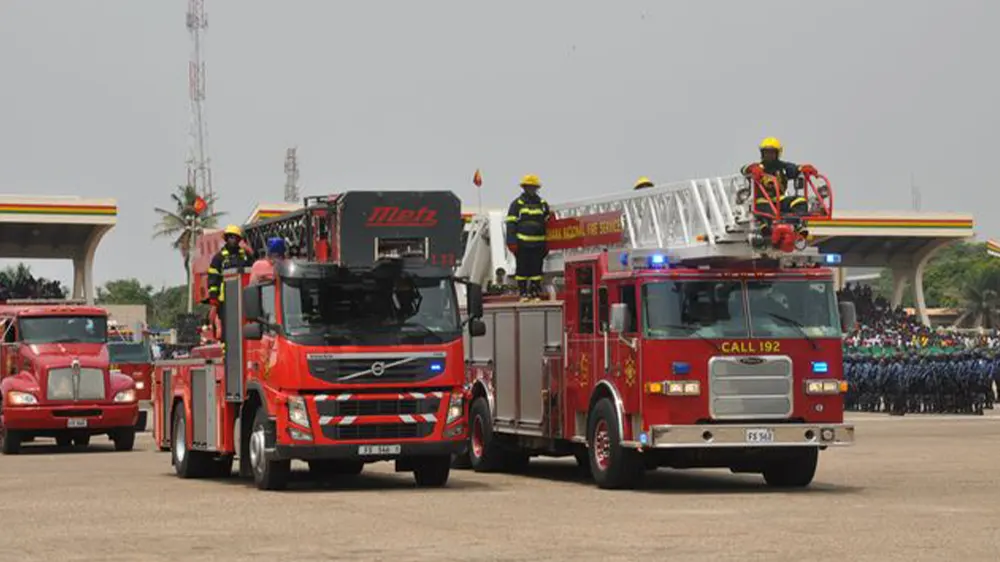The Ghana National Fire Service (GNFS) has issued a stern caution to the public, advising against practices that may lead to fire outbreaks at homes and public gatherings during the Easter festivities. Mr. Paul Ofoe Onyame, Station Officer II at the GNFS National Headquarters, highlighted several potential fire hazards and emphasized the importance of preventive measures.
In an interview with the Ghana News Agency (GNA), Mr. Onyame identified electrical gadgets, gas cylinders, and lighted cigarette butts as common agents for fire outbreaks. While acknowledging the utility of gas cylinders, he stressed the importance of handling them with care, noting that tubes connecting gas cylinders to cookers should be replaced within a maximum period of one year. Additionally, he cautioned against storing multiple gas cylinders filled with gas in close proximity and advised leaving some air space in the cylinders.
Furthermore, Mr. Onyame warned against leaving electrical appliances and sockets unattended, especially during the Easter season when many individuals attend church conventions and other gatherings. He emphasized the potential danger of such practices and urged the public to exercise caution.
Regarding public gatherings such as conventions and picnic grounds, Mr. Onyame underscored the importance of responsible fire management. He cautioned against reckless behavior that could lead to large-scale fires and urged individuals to handle fire with care, emphasizing the components of fire—air, heat, and fuel.
In case of emergencies, Mr. Onyame urged the public to promptly dial 112 for assistance from the fire service. He emphasized the importance of swift action in response to fire incidents to prevent escalation and minimize damage.
The GNFS's cautionary message aims to raise awareness and promote fire safety practices among the public during the Easter festivities, ultimately reducing the risk of fire outbreaks and ensuring the safety of individuals and communities.










Reading from Oslo, Good work GhStandard